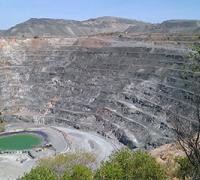Governing uranium in France
France has been an importer, producer and global supplier of natural uranium. This complex status derives from the fact that natural uranium enjoys two different roles in France’s view: first, as a strategic raw material, vital for both its civil and military nuclear programs; and secondly, a commodity which participated in shaping France’s status as a major commercial nuclear power, willing to retain a leading role in trading nuclear materials, technologies and services through major international companies.
This report looks at France’s quest for uranium, both at home and abroad. It describes how France’s status as a member of the European Union and its status as a nuclear weapon state have shaped its uranium regulatory structure over the decades from one that relied on Euratom for guiding regional and monitoring international obligations to one institutionalised by domestic law and competent authorities. Within this system, the ‘hypercentralisation’ of the French state provides contradictions and challenges where the state is at the same time a regulator, major shareholder of the French nuclear industry and responsible for the national nuclear deterrent. The governance of natural uranium in France is thus the result of a long and complex process that only recently has been shaped into a specific regulatory system.
The France country report is part of the larger ‘Governing Uranium’ project on global uranium governance, led by DIIS, which seeks to identify governance gaps in uranium accountability and control. It provides recommendations for France – and Areva – to continue to diversify their uranium acquisitions while maintaining transparency at the front end of the nuclear fuel cycle.

